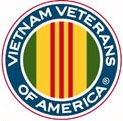More Of The Same
In yet another GAO report released on February 16, the investigative agency questions whether the Veterans Affairs Department can adequately help troops returning from Iraq and Afghanistan with PTSD. This latest GAO report was requested by Rep. Lane Evans (D-Ill.), the House Veterans’ Affairs Committee ranking Democrat.
Data for the 2004 budget year show that fewer than half of those using VA health care are screened for PTSD. The report also said that “if veterans returning from combat do not have access to these services, many mental health experts believe that the chance may be missed to lessen the severity of symptoms and improve the overall quality of life for those with the disorder.”
The VA contends that the report did not adequately describe the type of services for PTSD that the agency has provided over the past 20 years or its ability to provide such services in the future. In a reference to the GAO report, Dr. Jonathan Perlin, the VA’s Acting Undersecretary for Health, said: “We take exception to this report,” and noted that “the VA is a world leader in PTSD treatment.”
GAO investigators said the VA has put in place only 14 of 24 recommendations from an advisory committee that Congress created, while the VA says it has completed seven. The bottom line, according to the report, is that the delay “raises questions about VA’s capacity to identify and treat veterans returning from combat who may be at risk” for developing PTSD and maintaining treatment for veterans already receiving help.
PERCEPTION WARS
In early February, Col. Thomas Burke, Director of Mental Health Policy for the Department of Defense, said that the stigma for troops seeking mental health care “is a real problem,” and that “there is a perception among the troops that seeking mental health care means you’re weak or a coward and, frankly, we in the military foster that attitude.” Burke also noted that “the biggest barrier to reducing stigma in the military is confidentiality.”
In other words, troopers who self-identify themselves as suffering from PTSD or other forms of psychological trauma and then try to pursue medical help are running into difficulties. Perhaps that’s the reason for an Army Times report of February 28 that “some troops in Iraq are taking antidepressants such as Prozac, Zoloft and Paxil.” On the other hand, this does little to explain The Guardian’s report on February 17 that some scientists in South Carolina want to offer the street drug “Ecstasy” as a treatment for PTSD and are advertising for combat veteran volunteers. The scientists note that the drug-assisted therapy sessions last up to eight hours during which music is played.
COMMITTEE NOTES
The PTSD Awareness poster is hot off the presses. The committee decided to provide a copy to each of the 206 Vet Centers, as well as to each member who attends the San Mateo meeting of VVA’s Conference of State Council Presidents. In addition, the committee has begun planning a one-day conference on the immediate mental health needs of veterans, especially those participating in the War on Terror. Lastly, with the assistance of the Government Relations staff, the committee chair submitted written testimony for the record to the VA’s Veterans Readjustment group in mid-February.


0 Comments:
Post a Comment
<< Home